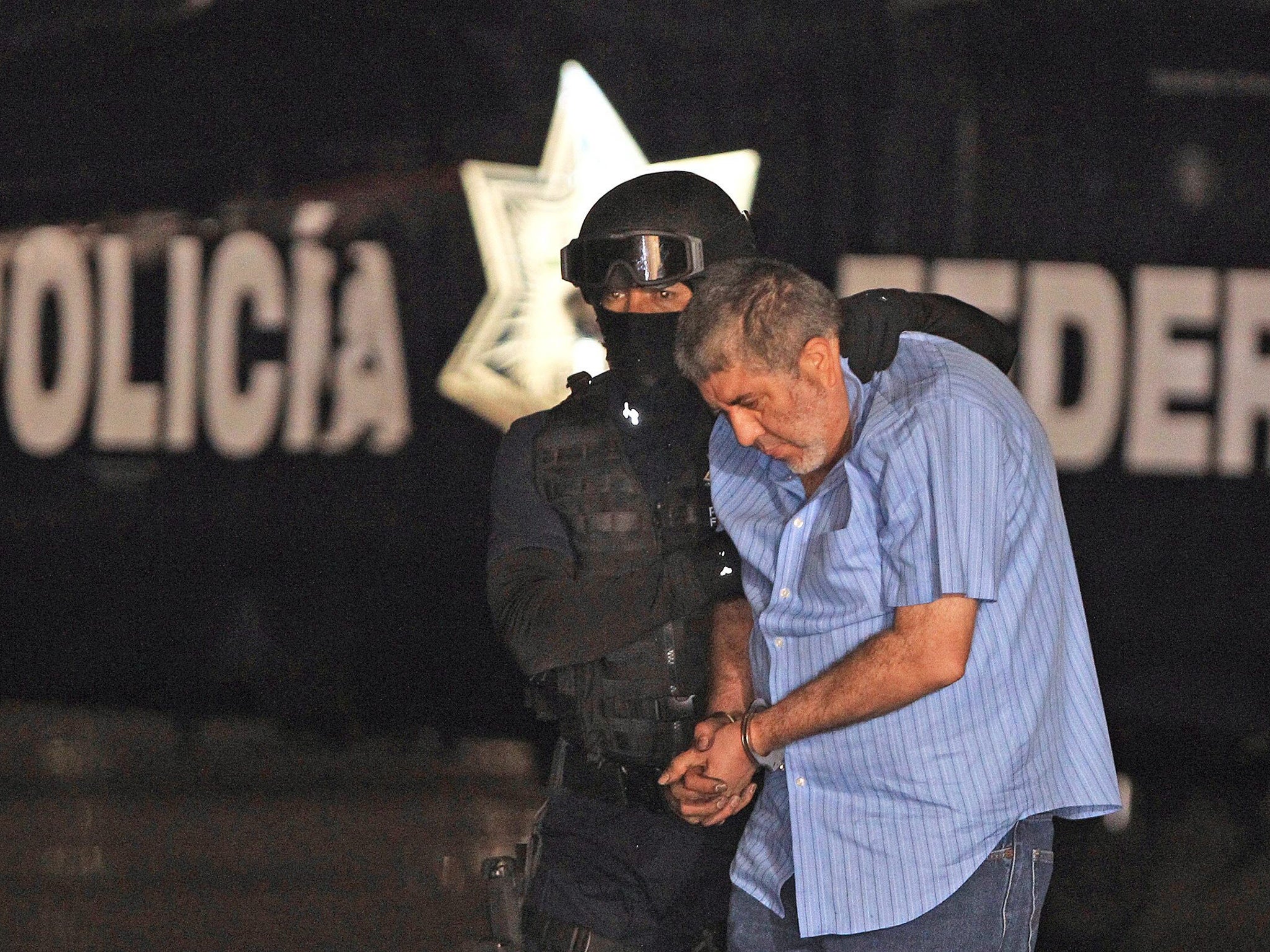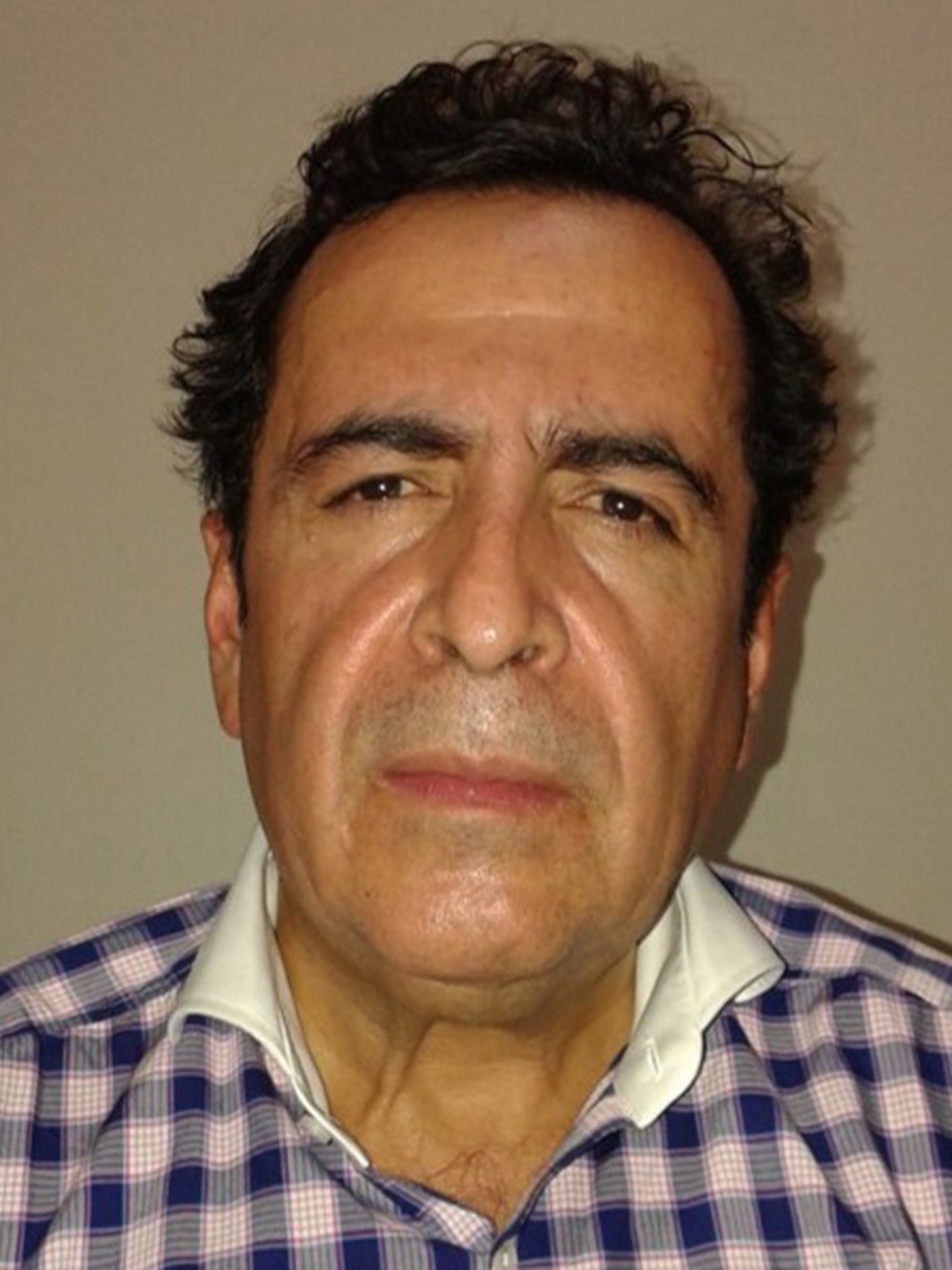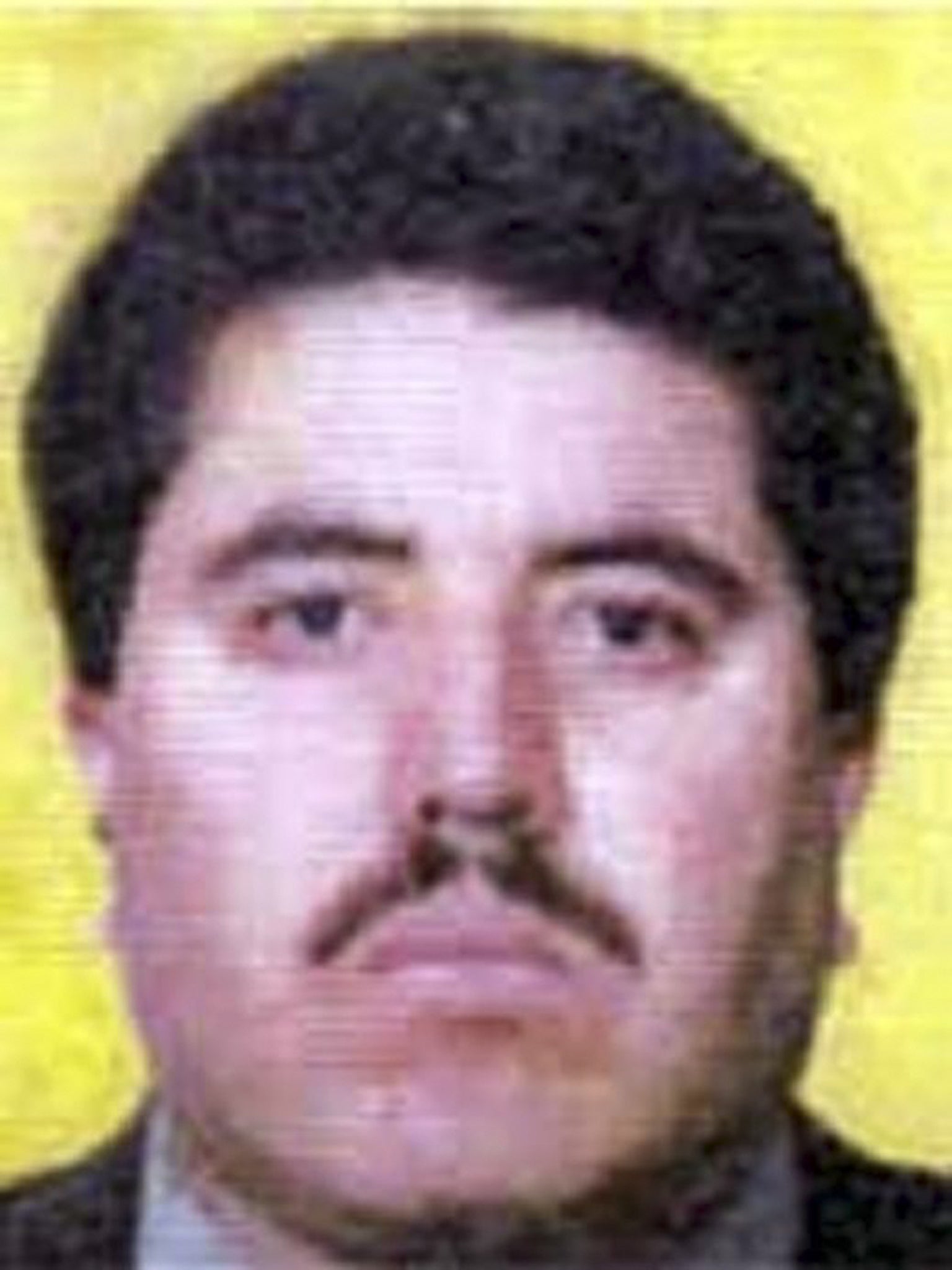Mexican drug lord held in fresh blow against cartels
Arrest may serve to distract attention from continuing outrage over disappearance of 43 students and discovery of mass graves in Igaula

Your support helps us to tell the story
From reproductive rights to climate change to Big Tech, The Independent is on the ground when the story is developing. Whether it's investigating the financials of Elon Musk's pro-Trump PAC or producing our latest documentary, 'The A Word', which shines a light on the American women fighting for reproductive rights, we know how important it is to parse out the facts from the messaging.
At such a critical moment in US history, we need reporters on the ground. Your donation allows us to keep sending journalists to speak to both sides of the story.
The Independent is trusted by Americans across the entire political spectrum. And unlike many other quality news outlets, we choose not to lock Americans out of our reporting and analysis with paywalls. We believe quality journalism should be available to everyone, paid for by those who can afford it.
Your support makes all the difference.It looked like just another of those ramshackle checkpoints that can pop up at any time on the roads of Mexico, a reminder of the country’s grinding war against the drug cartels.
When Vicente Carrillo Fuentes drove through it on Thursday he had a false licence at the ready and doubtless felt he had little to fear.
He was wrong.
This checkpoint outside the northern city of Torreon had been erected with a very particular quarry in mind. And he was it. Hunted by the US and Mexican authorities for 14 years with multimillion-dollar rewards for his capture offered by both governments, Mr Carrillo Fuentes had been under close watch for months. Finally, they had closed in; he was taken from his car without a shot being fired.
The arrest of Mr Carrillo Fuentes, 51, the head of the drug gang that for years made Ciudad Juarez – just across the border from El Paso, Texas, and the entry point for more than two-thirds of the cocaine flowing into the United States – one of the most violent cities in the hemisphere, represents the latest in a string of high-profile successes for the government of President Enrique Peña Nieto as it seeks to cripple the cartels. Mexico’s Attorney General Jesus Murillo Karam hailed it “a capture of great importance”.
The US also voiced its satisfaction. “One of history’s most notorious drug traffickers,” the suspect had “facilitated murder and violence in Mexico while fuelling addiction in the United States and across the world,” Michele M Leonhart, head of the Drug Enforcement Administration, said in a statement.

It has been barely two weeks since the capture of another cartel king, Hector Beltran Leyva, while he ate fish tacos in the tourist city of San Miguel de Allende masquerading as a businessman. Indeed, since Mr Peña Nieto assumed the presidency in 2012, Mexico has rounded up the heads of several of the most dangerous cartels. In a joint operation, Mexican and US agents in February netted Joaquin “el Chapo” Guzman, the biggest catch of all, in a flat in the Pacific beach resort of Mazatlan.
Yet the arrest of Mr Carrillo Fuentes, who took control of the Juarez gang after the 1997 death from a botched plastic surgery procedure of his brother, Amado, may in the end have limited impact on the wider campaign against the drugs trade. Indeed, the cutting off of a cartel’s head can sometimes have the effect of fuelling fresh violence as gangs splinter and new would-be kingpins battle to fill the vacuum. “It could drop the violence or increase it,” noted Gustavo de la Rosa, a human rights activist in Ciudad Juarez.
The gang founded by Amado, who was known as “Lord of the Skies” for his bravado in sending entire jumbo jets loaded with cocaine and other drugs into the United States, is believed largely to have been pushed aside in Juarez by its main rival the Sinaloa gang, in which case the arrest of Mr Carrillo Fuentes may have more symbolic than actual importance. The timing of it has also raised some eyebrows.
In spite of the drug-lord arrests, the Mexican government has recently confronted a series of other security crises from which any distraction might be welcome. Among them none is more potent than the recent disappearance of 43 teacher-training students in the state of Guerrero not far from Acapulco. The entire country, if not the world, has watched mortified as investigators have uncovered mass graves nearby, one filled with the charred remains of 28 bodies. A second mass grave was uncovered on Thursday.

What happened to the students is still unknown, but they appeared to disappear after a confrontation with local police, many of whom are now under investigation. Meanwhile the mayor of the town where they were studying, Iguala, has also vanished with his wife and security chief and is believed to be on the run.
Human rights groups are also pressuring Mexico City over an operation in June in a mountain town near a drugs route that left 22 people dead. While police at first reported a firefight, evidence has since surfaced suggesting that some of the victims were executed after surrendering.
President Peña Nieto was forced to address the Guerrero case in a speech to the nation at the start of last week. “We need to find the truth and make sure the law is applied to those responsible for these outrageous, painful and unacceptable acts,” he said.
Whether or not it was actually timed to serve as political distraction, the arrest of Mr Carrillo Fuentes may offer the government a bit of a breather. After being flown to Mexico City and paraded for reporters on the tarmac at the airport, he was taken into custody pending trial.
The US is sure to seek to extradite him, in part because of fears that Mexican prisons are not secure enough to avoid his possible escape. He faces a 46-count indictment in Texas that includes charges of variously trafficking in cocaine and marijuana, money laundering and murdering in furtherance of other crimes.
Join our commenting forum
Join thought-provoking conversations, follow other Independent readers and see their replies
Comments